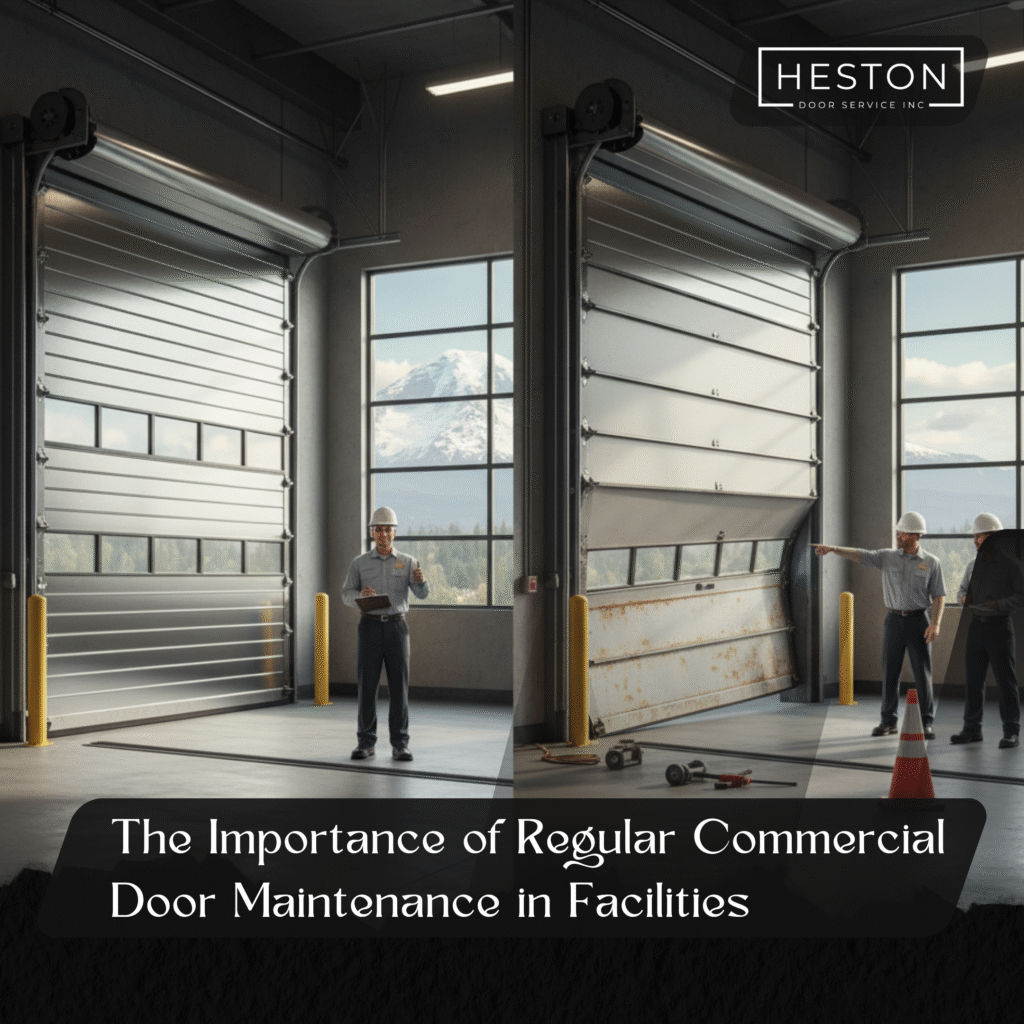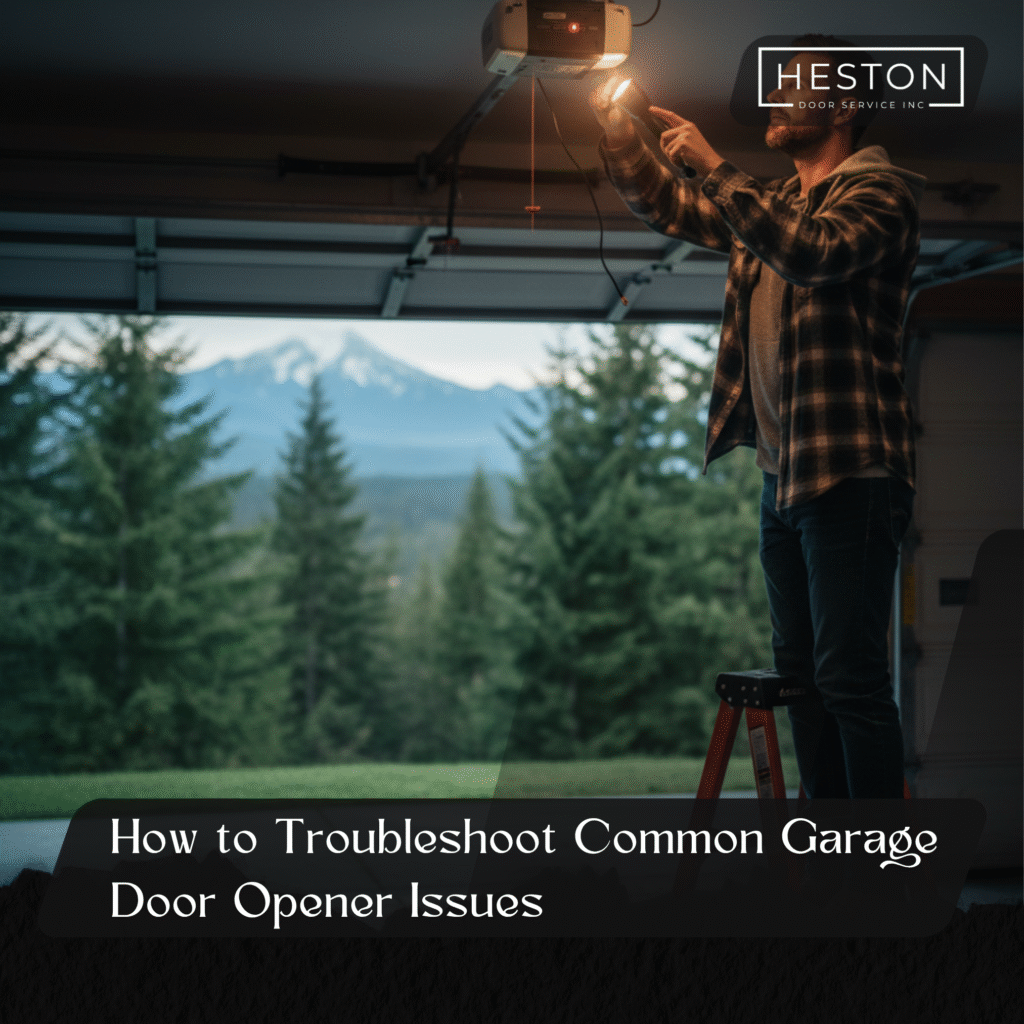Garage doors are one of the most important and frequently used components of a home. They protect vehicles, provide secure access, and contribute significantly to curb appeal. But when something goes wrong, whether it’s a noisy track, a faulty spring, or a broken opener, many homeowners face a crucial decision: attempt a DIY Garage Door Repairs or call in a professional.
For residents across Washington’s neighborhoods, where variable weather and older housing structures can make repairs more complex, this decision can have a lasting impact on safety, cost, and long-term performance. While DIY fixes may seem tempting, professional garage door services often save homeowners time, money, and risk.
1. Why Homeowners Consider DIY Garage Door Repairs
There’s a certain satisfaction in tackling household repairs on your own. For some homeowners, DIY can seem like a budget-friendly and fast solution.
Common DIY repair attempts include:
- Tightening loose bolts or brackets.
- Cleaning and lubricating tracks.
- Realigning sensors.
- Replacing remote control batteries.
- Clearing minor obstructions.
These minor tasks can sometimes improve door operation temporarily, but the reality is, most garage door systems are complex mechanical structures. What seems like a small issue may actually be a symptom of a larger underlying problem.
2. The Risks of DIY Garage Door Repairs
Garage doors can weigh hundreds of pounds and are under constant tension from springs and cables. A single mistake can lead to serious injury or expensive damage.
Major risks include:
- Spring or Cable Accidents: Torsion springs store a dangerous amount of energy. Mishandling them can cause severe injuries or property damage.
- Misalignment Issues: Incorrect track adjustments can make the door uneven or unstable.
- Worsening the Problem: Inexperienced repairs often lead to additional issues, requiring costlier professional intervention.
- Warranty Voids: Many garage door manufacturers void warranties if unlicensed repairs are performed.
- Safety Hazards: Faulty repairs can cause doors to malfunction, putting your home and family at risk.
Even something as simple as tightening the wrong bolt can throw the system off balance and compromise its safety.
3. What Professional Garage Door Repair Offers
When you hire a professional garage door technician, you’re not just paying for a repair; you’re investing in expertise, safety, and long-term reliability.
Professional technicians can:
- Diagnose the root cause of the problem quickly.
- Safely repair or replace springs, cables, and openers.
- Ensure doors are balanced, aligned, and secure.
- Offer warranties on parts and labor.
- Upgrade older systems to more efficient, secure options.
Professionals have specialized tools and training to handle complex components without putting themselves or your property at risk.
4. Common Garage Door Problems That Require Professional Help
While simple cleaning and sensor adjustments can be DIY-friendly, some issues are best left to experts.
These include:
- Broken or worn-out springs.
- Damaged cables or pulleys.
- Misaligned or off-track doors.
- Malfunctioning openers.
- Structural damage to panels or tracks.
- Strange grinding, screeching, or popping noises.
For homeowners in Washington’s varying climates, where rain, wind, and temperature shifts can accelerate wear, these issues can escalate quickly if not addressed properly.
5. Cost Comparison: DIY vs. Professional Repairs
DIY Costs:
At first glance, DIY seems cheaper. You may only spend on basic tools, parts, or lubricants. But if something goes wrong, the cost of fixing additional damage can easily surpass what a professional service would have charged initially.
Professional Costs:
Professional services often include diagnosis, parts, labor, and warranties. While upfront costs may be higher, they’re more predictable and ensure the issue is fully resolved, reducing future expenses.
In most cases, investing in a professional repair early on is more cost-effective than multiple failed DIY attempts.

6. Safety First: Why Garage Door Springs Aren’t for DIY
One of the most dangerous components of a garage door is its torsion or extension spring system. These springs bear the weight of the entire door.
- Tension Hazards: A snapped spring can recoil with extreme force.
- Improper Handling: Replacing springs without the right tools and training can lead to serious injury.
- Unbalanced Doors: Incorrect spring tension can make the door unsafe to operate.
Because of this, spring repair and replacement should always be left to certified professionals.
7. Long-Term Performance: The Professional Advantage
Even if a DIY repair seems successful at first, it often doesn’t address the root problem. A professional technician, on the other hand, ensures the entire system functions smoothly:
- Tracks and rollers are properly aligned.
- Sensors are calibrated.
- Springs and cables have balanced tension.
- The opener is working efficiently.
- The safety reversal system is tested.
This not only extends the lifespan of your garage door but also reduces the need for frequent service calls.
8. DIY Repairs Can Impact Your Home’s Security
Your garage door is also an entry point to your home. An improperly repaired door can:
- Fail to close completely, leaving your home vulnerable.
- Compromise locking mechanisms.
- Interfere with smart security system integrations.
Professional services ensure your door is not only functional but also secure against break-ins, a growing concern in many Washington neighborhoods.
9. The Benefits of Hiring Local Washington Professionals
Choosing a local garage door service in Washington brings added advantages:
- Faster Response Times: Local companies can respond quickly in emergencies.
- Knowledge of Local Climate: Technicians understand how Washington’s weather affects doors.
- Personalized Service: Smaller, community-based businesses often provide better customer care.
- Reliable Maintenance Plans: Many local companies offer seasonal maintenance to prevent future issues.
10. When DIY Is Okay vs. When It’s Not
Safe DIY Tasks:
- Cleaning tracks and rollers.
- Lubricating hinges and springs (with proper products).
- Replacing remote batteries.
- Removing visible obstructions.
Leave to the Pros:
- Replacing springs or cables.
- Adjusting track alignment.
- Fixing opener motor issues.
- Repairing structural damage.
- Electrical troubleshooting.
11. Avoiding Future Repairs with Preventive Maintenance
Whether you choose DIY for minor upkeep or rely fully on professionals, preventive maintenance is key to avoiding costly repairs down the line.
Best practices:
- Schedule annual professional inspections.
- Keep tracks and sensors clean.
- Lubricate moving parts every few months.
- Test the auto-reverse system regularly.
- Tighten hardware to prevent misalignment.
Regular maintenance can extend the life of your garage door system by years and keep repair costs manageable.
Call to Action
Your garage door plays a major role in your home’s safety, convenience, and curb appeal. While DIY solutions might work for small issues, professional repair is the smartest and safest choice for lasting results. If you live in Washington and notice your garage door struggling, making noise, or not closing properly, don’t wait for it to fail completely.
Schedule a professional garage door repair service today and enjoy peace of mind knowing your system is safe, efficient, and built to last.





